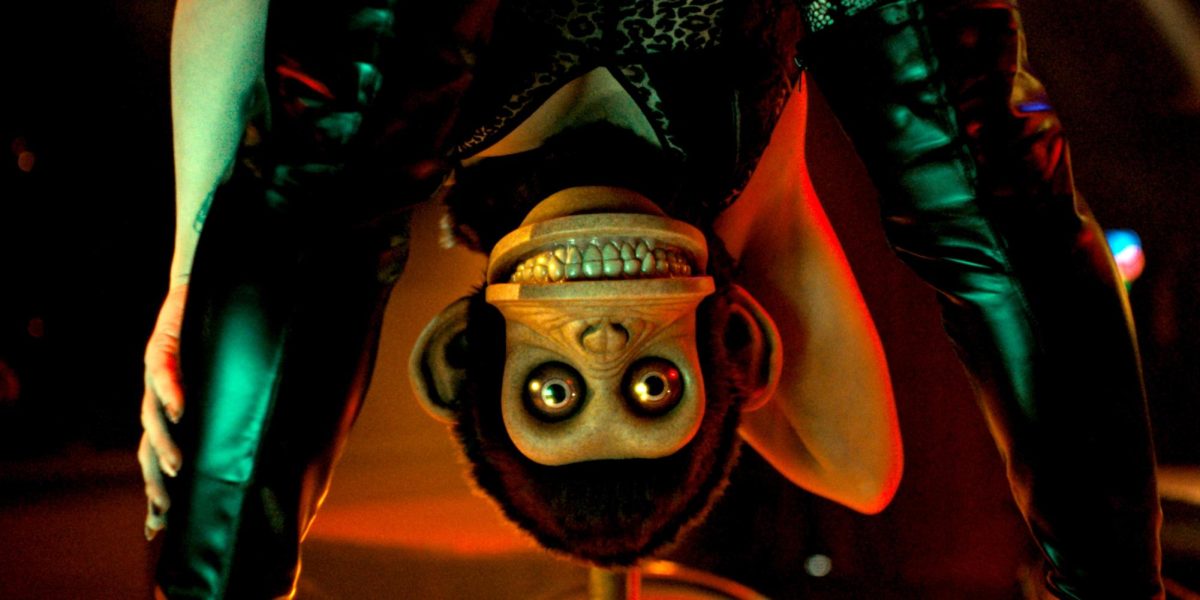The light bulb blows out just as Kaylie (Karen Gillan) takes a bite of her apple. She sets her snack down on the counter next to the dead bulb. She screws in a new one, and light illuminates the room. She resumes eating, obliviously taking an enormous bite out the light bulb instead of her fruit. As her mouth fills with blood and glass, the line between reality and illusion blurs as the film progresses.
This merging of illusion and reality fuels the horror in “Oculus,” which follows 21-year-old Tim Russell (Brenton Thwaites), who has spent the past 11 years recovering from a traumatic incident in a psychiatric hospital after police reports show he shot and killed his father (Rory Cochrane).
Tim’s older sister, Kaylie, has been eagerly awaiting his return home, as she aims to enlist Tim’s help to destroy the paranormal force she believes caused the death of their mother and father — a promise he made to her on the eve of their parents’ death.
While Tim was in the hospital, Kaylie searched for a mirror that used to hang in her father’s office, and she eventually discovers it at an auction. Kaylie, after researching the history of the mirror, becomes convinced the antique possesses supernatural powers, which demonized her mother (Katee Sackhoff) and possessed her father. With this in mind, she is eager to prove Tim’s motivation for killing their father was driven by a larger force. As their investigation continues, it is revealed that the mirror uses its strength to manipulate its victims into believing what it wants them to see.
The film makes major use of parallel plotlines, flashing between the siblings’ lives as adults and children. Through this method, director Mike Flanagan takes his audience through a disturbing journey of the haunting memory Tim and Kaylie have of the mirror’s capabilities. Without becoming distracting, the plot immerses the audience in the two alternating timelines.
Flanagan begins “Oculus” rather slowly, allowing room for characters to better connect with the audience. Most of the film’s opening is spent introducing the happy Russell family settling into a new home. Meanwhile, the film flashes forward to the present day, where Tim and Kaylie have suffered from some unknown event during their childhood. The transitions between past and present create suspense, eventually focusing on the actual effects the mirror had on the family. As the flashbacks become more frequent and the timeline more complex, the audience is further perplexed.
Visually, the film takes advantage of the film’s past-to-present structure, offering several shots where the locations remain the same as the actors transition from children to adults. Flanagan also plays with the angling of some shots, creating a diverse collection of uncommon perspectives, portraying some scenes from a bird’s eye view and some through jarring, titled frames.
Occasional and unexpected scary moments throughout the film keep viewers on edge as the film progresses. “Oculus” uses its startling and nail-biting moments, such as the apple-turned-lightbulb incident, in tandem with the constant psychological mind games the siblings experience as they recall their childhood to optimize the horror of the situation.
The ending sticks with the overall theme of the film, keeping the resolution somewhat disorienting and leaving interpretation up to the audience. The conclusion, which results in some surprises, leaves some questions about the fate of the characters unanswered. This open-endedness may cause the film’s end to feel like a deliberate set-up for a sequel.
“Oculus” begins as a slow-moving horror flick, building up suspense into an intricate system of flashbacks and keeping the audience wondering if the story is a figment of the characters’ imagination or reality. It offers a new twist on a commonly used horror theme of supernatural powers, crafting some quality frights throughout its 104-minute run time.
















